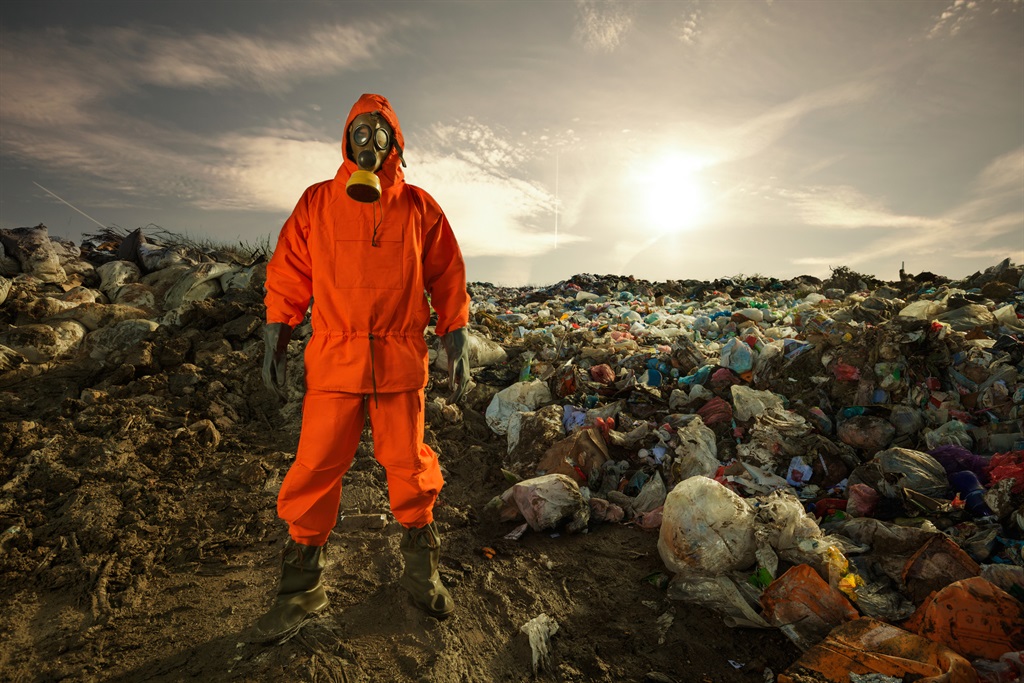
The South African approach to an integrated treatment of plastic waste is set out in the country’s environmental affairs.
Though there are numerous methodologies that somewhat get lost in the myriad of administrations. In response to this situation I thought to present my position on the reduction, recycling and/or reuse of plastic waste treatment as an acceptable method option for all consumers in South Africa.
The framework within which certain approaches can be adapted from other emerging countries can form a basis to the issues and problems of waste management that have been acknowledged. The gradual increase of waste generation in the country, has contributed to the historical backlog of inadequate waste services (infrastructure), leading to unpleasant living conditions and an unhealthy environment within and around our landfills.
Increased emphasis is placed on operational waste management, environmental aspects and the legislative framework, but little effort is put into examining alternative mechanisms and policies that citizens can adopt as a safe means towards an eco-friendly society.
My observations consider the current waste management patterns, and the unsustainable rate of waste generation and disposal – clearly outlining why local structures (such as municipalities) can no longer afford the “collect and dump” approach to waste management.
Due to socioeconomic factors in South Africa, waste dumping is dominating as the preferred method for waste disposal on landfills, but space constraints at these sites is a serious cause for concern. Through various examples I will describe and explain how South Africa is not being effective with its management particularly with plastic.
To create an environmentally sound management of plastic waste in South Africa, through the integration of a sufficient range of complementary waste management options, there is a cooperative governance provisions contained in the Constitution of South Africa, that, all government departments across the different portfolios must consider various policies in their decision-making to the treatment of waste.
South Africa has an intensive, growing manufacturing sector which results in the generation of hazardous and general waste that typically has increased between 2% and 3% annually. According to, the disposal of general and hazardous waste to landfill areas is currently the primary option for waste management in the country which was published in the Government Gazette of 2009.
Nationally the increased generation of municipal waste is widely recognised due to its negative environmental impacts and thus South Africa has several notable waste management policies, plans and strategies that support the waste management hierarchy. However, the lack in policy direction has resulted in or contributed to several constraints. These constraints range from a lack of awareness towards and impact of recycling, infrastructure accessibility and improper disposal of waste.
South Africa is not being effective with its waste management, particularly in its use with plastic. Can South Africa develop a comprehensive, integrated approach to waste management?
Considering this, I think that it is our responsibility to not only change the way we live but to insist to policy makers that South Africa should implore a system of an integrated, sustainable waste management approach with a long-term objective of a holistic view of an entire waste management system. This would include waste minimisation, collection, transfer, treatment, recycling, resource recovery, and disposal. Managing waste is an enormous task that requires important planning and decision criteria that include social, cultural, environmental, institutional, financial and technical factors.
In my analysis of South Africa, I looked to other emerging countries that have similar economic degree of industrialisation relative to their populations such as Brazil. The World Economic Situation and Prospects report of 2012 details how Brazil produces 240 000 tons of waste every day and out of this amount, only 2% is recycled and the rest is destined to landfills. In contrast to South Africa, Brazil’s main barrier for recycling is in the lack of infrastructure – only 62% of the Brazilian population have access to regular garbage collection and the collection of recyclable material is very rare.
South Africa could learn to improve its waste collection process and transport efficiency an example established by the communities in the Philippine city of Sorsogon. The community use a practice, yet simple composting through material recovery facilities, where people are encouraged to reduce, reuse, and recycle waste a diverting waste from landfills.
Waste management is crucial to reducing impact upon the environment. It is also a fundamental in maximising the integrated waste management planning regime. This would involve enlisting measurable outcomes, looking at the capacity required to ensure effective integrated waste management planning, and redirecting the behaviour of communities toward a new level of positive participation in improving and maintaining a healthy, ecologically protected environment.
• Mota Mota is an account manager at Edelman South Africa




 Publications
Publications
 Partners
Partners








